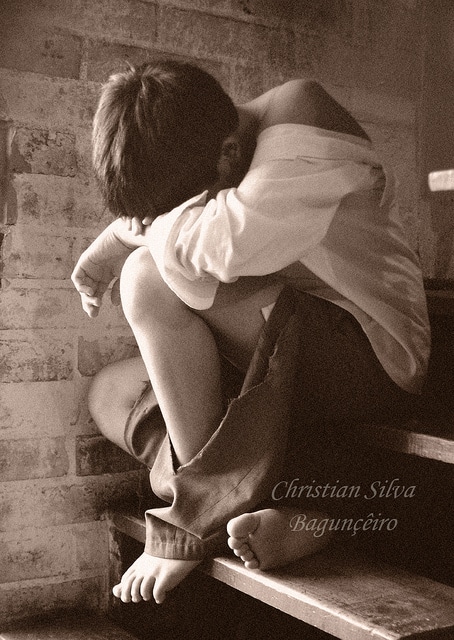
By Jenny
Life has brought me to a good place after throwing me through the refiner’s fire over the last few years. I am happy and thriving, and rarely think about the loss, pain, and loneliness that was my faith transition. Every once in a while though, I reflect on those years and the experiences that moved me to the place I’m at now. Three years ago this coming Sunday was a particularly memorable day of sadness for me. I was sitting in a primary presidency meeting after sharing time. We were talking about the upcoming ward activity that we were in charge of, and planning games for the kids. Everything seemed like business as usual. I had just taught a sharing time lesson on faith, and it was the first time since my views and feelings about the church had shifted, that I finally felt perfectly comfortable teaching. I felt like I had finally mastered the art of teaching a nuanced lesson that was palatable to the most orthodox Mormon, engaging for the kids, and in alignment with my own standards and feelings. I was finally feeling like I could march to my own drumbeat and still be part of my tribe.
Then a tap on my shoulder changed everything. I turned around to see my bishop. “Can I meet with you in my office?” Immediately my stomach clenched. I had been in that office…far too many times in the last few months. It had become a place of spiritual abuse for me. I had sat in that office discussing the material between my legs with a middle-aged man who didn’t want me wearing pants to church. In that office I had sought for understanding and instead been mocked and belittled. I had been stripped of my good feelings for church leadership and authority. I had been robbed of the outward symbols of belonging that made me part of the tribe. As I looked at my bishop now, the words of my feminist sisters rang in my head, “You don’t have to meet with him. You can ask what the meeting is about. You don’t have to go into his office.” But my old ways of acquiescing to leadership tugged at me and my optimism that things were getting better won out. I followed my bishop to his office.
As he sat down across the desk from me he gave me the familiar look he had had on our previous visit. It was a look that told me I was a pesky fly on his shoulder that he wanted to smack with a rolled up magazine. But this time his look said more than that. The gleam in his eye told me that he finally found the magazine that would do the job.
“It’s time for me to release you from your calling,” he said, the sides of his lips turning up slightly.
“Why?” I asked. I had only been in the primary presidency for a year. It was not an easy calling, but I worked so hard at it. It was not easy to get my four kids to primary by nine in the morning by myself, but I had done my best. I had worked hard on my lessons, maybe even harder than most primary teachers because I was careful, oh so careful with every word I said. I was careful not to step out of the bounds of what was acceptable at church, and I made sure that every word I said would empower the young girls in primary and help them to understand their worth.
“It’s not working to have you in there. We both knew this was coming” he said. No, I had been blind-sided. I had just volunteered to do some work on the activity for Friday and every woman in that primary room knowingly let me volunteer even though I was about to be released. It was business as usual. The activity must go on. They had no idea that my whole world was crumbling around me. No one knew the heart-wrenching pain I had been in for months now, least of all my “spiritual leader” who sat across from me with a dumb smirk on his face.
“Would you accept another calling?” he asked, as though he might be able to find a quiet corner to hide me in.
I looked at him dumbfounded. “What’s the calling?”
“I don’t have one yet,” he said as though it was the most natural thing to release me and only me from the primary presidency in a way that would be publicly shameful without already having another calling in mind.
“I would have to know what it is before I accept it,” I said.
“Well, don’t let this make you stop coming to church,” he said. “I’m doing this out of love to help you. Now you have a choice. You can stay close to the fire…” His voice droned on as he foretold a bleak future for me and my family if I fell away. I stood up, my whole body weak and numb. I just had to get my kids and get out of that building before I started to cry. The bishop followed me to the door of his office still talking about the woes that would become of me now if I let this keep me away from church. The tears came like the rain pouring onto my windshield as I drove home.
That grey afternoon I sat in my daughter’s room listening to familiar, comforting Mormon music on Pandora. I cried for my Mormon family that had taught me the parable of the Good Samaritan. I had so much faith that I belonged to a community of good Samaritans. I had seen examples my whole life of good people who went out of their way to serve and love others. But as anguish and loneliness flooded my heart that afternoon, I was learning that I was no longer good enough to be the recipient of that love. I felt a kinship the man left half dead on the side of the road, stripped and wounded by thieves. I was not worth saving, so those who had the power to lift and help me “passed by on the other side.”
I felt this act of purposefully crossing over to the other side of the road as they ignored my very real pain and focused more on the activity they were planning. I felt it through the judgment that was thrown at me in order to protect themselves from having to understand where my feelings came from. I felt it in the way I was told that I was being wounded out of love or that my wounds weren’t real or that my wounds were self-inflicted. I have seen this active “passing by on the other side” as I have been privy to countless other stories of good people being ostracized from their faith communities because in one way or another they couldn’t be what they were expected to be.
I have seen good, loving people, people who know the parable of the Good Samaritan by heart, people who would consider themselves Good Samaritans and maybe rightfully so because of all the good works that they are engaged in, who still pass by on the other side. They pass by when they say, “If she didn’t want a baby she shouldn’t have had sex.” They pass by when they fear that helping Syrian refugees will compromise their own safety. They pass by when they deny that their consumer-driven appetites and the pollution created by those appetites are destroying the homes and way of life for others. When people who are disadvantaged in society because of their race, gender, sexual orientation, or economic circumstances are crying out in pain because of the inequality that leaves them beaten and wounded, I see people crossing the street to get away from them by saying, “There’s no inequality. I don’t feel unequal.”
I am guilty myself of passing by on the other side. All too often the pain of the world feels like too much and I avert my eyes. I don’t want to see. I don’t want to understand. The other day I saw a news story about the horrible prison conditions in Syria where artists, journalists and others who have protested have been taken to be slaughtered. I went to click past the story because I didn’t want to know. But their pain needs to be my pain. I need to know. I need to understand. I can’t go on with life as usual, thinking everything is fine in the world just because I’m not the one suffering or because I don’t understand the suffering.
Sometimes when I knowingly pass on the other side of the road I go back to that time in my life when I felt like I had been spiritually left for dead. I think about the Good Samaritans who did lift me up. After I was released from the primary presidency and didn’t have to teach my sharing time lessons for the month of March, I decided to go to an Exponent event in Utah Valley. I was nervous to go to an event alone and to seek out a new tribe. After the event I found myself being invited to dinner with three writers from the Exponent. We talked for three hours and they listened to me as I cried and shared my struggle with them. They saw and understood the wounds that had been inflicted on me. They bound up those wounds simply by seeing, hearing, and valuing me. They asked me if I wanted to write for the Exponent.
This experience over the last three years of writing for the Exponent has been one of my greatest sources of healing. I have been able to make sense of my new world through writing, and associating with others who know and understand my heart. Things have changed a lot for me over the last three years. I am in a much different place now. A new and beautiful world is open to me that I couldn’t have even fathomed before. My negative experiences at church are no longer crippling to me. I can look back on this experience from three years ago and know that it was meant to help me understand my role in binding the wounds of those who have been beat up by human institutions and expectations. It has helped me to realize that there is no one on this planet that is unworthy of my compassion. It has made me more aware of the direction I start to head when I see someone in pain.
I will be forever grateful for the Exponent and the healing power it has had in my life. I am taking a step back now from posting monthly as a perma-blogger, but I will continue to write and be part of the community that has given me a voice when I felt lost and powerless.




9 Responses
This made me teary, Jenny. I’m so grateful for you and your words. I’m going to think a lot about the times in my life when I’ve been all three people in the parable of the Good Samaritan – the person left for dead, the person who helps, the person who passes by. I’m so glad that you and I both landed here, and it’s been such a privilege to write and work alongside you. I can’t wait to see what adventures lie ahead for you!
I, too, have a strong testimony of the Exponent! It has a lot of power to heal. I’m sad you are stepping away, but I am glad you are taking care of yourself. Love to you!
This is so lovely and helped me think about the story of the Good Samaritan in a totally different way. Love you, Jenny!
I relate to your description of “the art of teaching a nuanced lesson.” I’ve been shocked to find myself agonizing over every lesson and talk when teaching used to be a joy.
I’m currently in the primary presidency and taught just today. Every lesson this year is a variation on “choosing the right brings blessings”. Today’s variation was “MEMBERS OF THE CHURCH are blessed for choosing the right” gag! That’s a terrible distinction to make. I told a story of women who brought down the blessings of heaven through their service and sacrifice.
Unless you can point to anywhere in the text that says those who are not members of the Church do not get blessed for choosing the right there is no distinction made.
If you look for problems in our texts you will find them. If you try to take them at face value, and for what they are attempting to do, you will not.
And make sure you keep telling the children about all the wonderful women. Men are awful creatures whose ability to bring down the blessings of heaven are sorely wanting.
Thank you Jenny. I was deeply moved by this and reminded that I need to keep an eye out for those who struggle. It’s easy to think that someone is waving when actually they are drowning. God bless you as you move forward!
This was so, so beautiful! I will be saving this to re-read many times. Thank you for sharing, and for putting into words how I feel too.
This made me see the Good Samaritan parable in a new way, too. Many of your posts have been wonderful examples of scriptural exegesis. I’m so glad you’ve written for the blog these few years!
I will miss your voice. Beautiful writing. Important message.